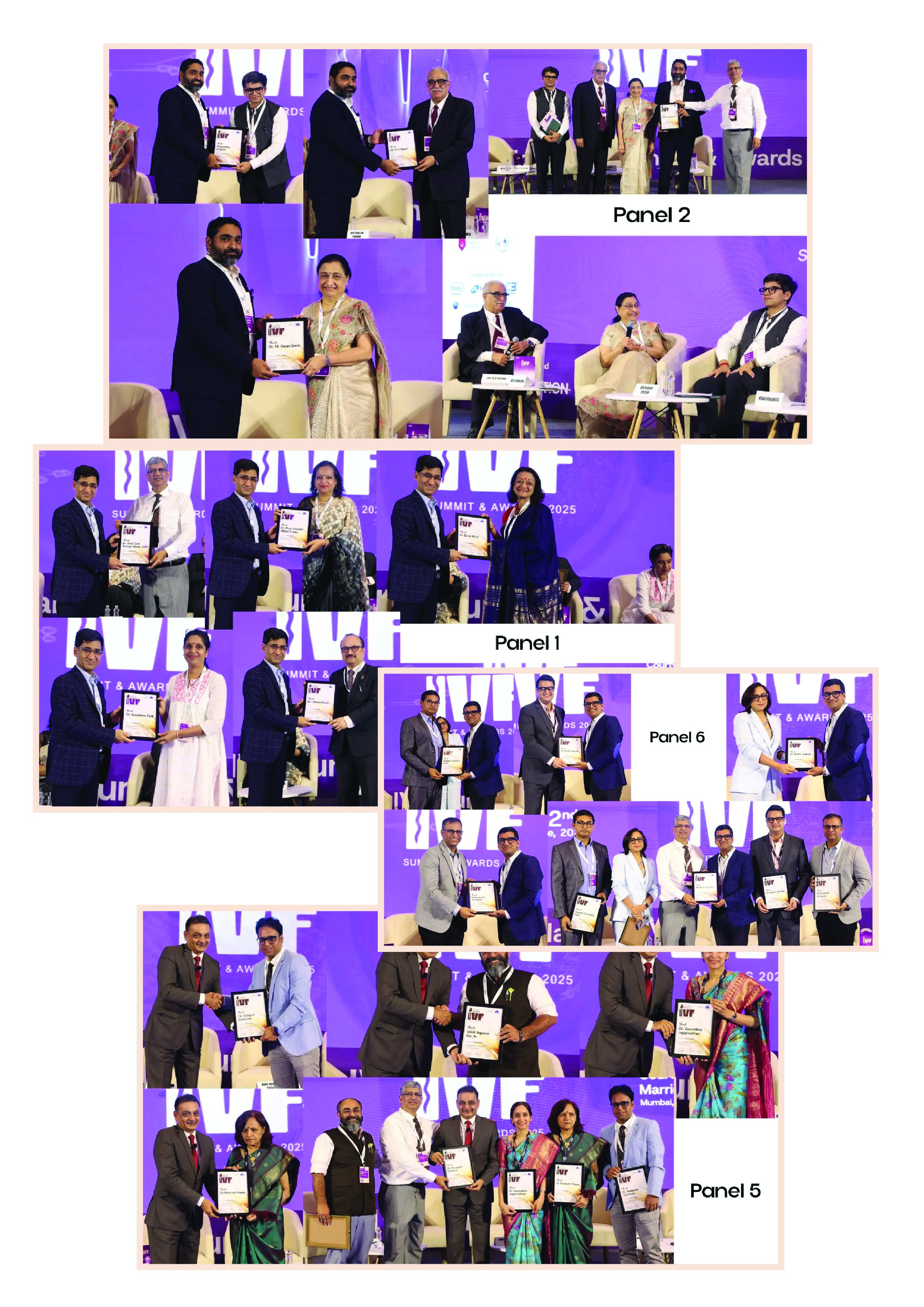Excellence in Gyne-Endocrinology and
Women’s Health
Educational Leadership in ART & Clinical
Embryology
Dr. (Prof) Col. Pankaj Talwar, VSM
Center of Excellence in Advanced
Reproductive Technologies
Institutional Excellence in Fertility Services
Rising Voice in Reproductive Medicine
Leadership in Minimally Invasive
Reproductive Care
Pioneer in IVF & Embryology – National
Excellence in Clinical IVF Practice &
Society Leadership
Emerging IVF Leader – North India
Excellence in Reproductive Medicine –
North India
Excellence in Clinical IVF Practice - East
Excellence in Clinical IVF Practice - South
Young Achiever in Fertility Care - West
Excellence in Reproductive Medicine –
South India
Excellence in Clinical IVF Practice - North
Best-in-Region IVF Excellence - East
Young Achiever in Fertility Care - East
Rising Star in IVF - West
Promising IVF Specialist – Maharashtra
Excellence in Clinical IVF Practice - West
Emerging IVF Specialist – East India
Outstanding Patient Care in IVF
Next-Gen Fertility Specialist
Rising Star in Fertility & Cosmetic
Gynecology
Laparoscopic Surgeon of the Year for IVF -
Central India
Lifetime Excellence in Advancing Fertility
Care in India
Lifetime Achievement in Pioneering IVF &
Reproductive Science in India
Healthcare Entrepreneur of the Year in
Fertility Innovation
Leadership in Fertility Counseling & Patient
Wellness
IVF Specialist of the Year - South
Outstanding Contribution in Reproductive
Medicine & OncoFertility
OB-GYN of the Year - South
Dr. Rajni Priyadarshini Bangari
Rising Star in OB-GYN - South
Excellence in Leadership & Clinical
Practice in IVF
Embryologist of the Year - National
Embryologist of the Year - South
Embryologist of the Year - West
Dr. Kalyani Bade, Dr. Atita Shinde
Embryologist of the Year - East
Dr. Jugal Jyoti Borah, Dr. Dayanidhi
Kumar
Emerging Embryologist of the Year - North
Rising Star in IVF - South
Dr. Vidyalatha Atluri, Dr. Swapna
Yaramareddy
Rising Star in IVF - Central India
Emerging IVF Leader – West India
Women's Health Leader of the Year –
National
Trailblazer in Women’s Health & Fertility -
National
Champion for Women’s Health – Clinical &
Policy Impact
IVF Specialist of the Year - North
Emerging IVF Specialist of the Year
IVF Specialist of the Year - West
